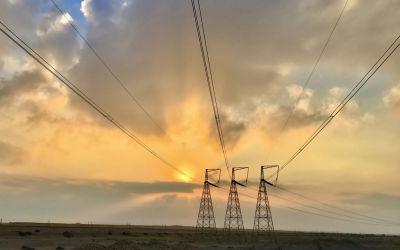An “alarmist view” on climate change?
The report produced by the UN body that advises nations on climate change, the Intergovernmental Panel on Climate Change (IPCC), has been accused of presenting a one-sided case

 The report produced by the UN body that advises nations on climate change, the Intergovernmental Panel on Climate Change (IPCC), has been accused of presenting a one-sided case. The report focused on the negatives of climate change and failed to mention any of the positives that have arisen from a rise in global temperatures.
The report produced by the UN body that advises nations on climate change, the Intergovernmental Panel on Climate Change (IPCC), has been accused of presenting a one-sided case. The report focused on the negatives of climate change and failed to mention any of the positives that have arisen from a rise in global temperatures.
The report has implied that climate change, rather than population growth, is the main reason that communities are facing water shortages, when in fact the reverse is true. The report also claims that by 2035 the world's glaciers will have melted if no action is taken to reduce emissions, however it is the belief of the majority of glaciologists that it will take 300 years for them to thaw.
The Dutch government investigated the report after the IPCC admitted mistakes in its 2007 report. The investigation concluded that the bulk of the IPCC's report was justified in saying that climate change posed a threat across the planet but that they needed to be improve their credibility by giving a range of possibilities not just the most alarming. The Dutch government agency has claimed that the report could be accused of representing an "alarmist view."
The investigation stated that the report "lacked a clear explanation of the choice of approach and its consequences" For example, the IPCC projected that 60 per cent of the great barrier reef would be damaged by regular bleaching by 2020, however they failed to note that this was a worst case scenario and in reality the statistics could be less damaging. Throughout the report there are clear cases where only the worst-case scenario is portrayed and the range of possible outcomes from climate change are excluded from the report.
The investigation into the report has advised the IPCC that its next report, which will be issued in 2013, should include an additional summary providing a more objective and balanced evaluation of the risks nations face in the wake of climate change. Although it is good for policy makers to be made aware of what the most extreme effects of climate change could be it is important to highlight that these scenarios are not fact, they are only projections, as the investigation states:
"The legitimacy of the findings could be increased if the reader would be explicitly informed about the fact that a specific approach has been employed."
The investigation also found several minor errors and one major error in the report, which need to be rectified. The IPCC have announced that they will pay attention to the agency's recommendations and take into consideration the advice they have been given. A second investigative report is due to be published in October by the InterAcademy Council which the IPCC has stated it will also take into consideration alongside the current investigation for their 2013 report.
Author: Rachael Bristow | Climate Action
Image: CybersamX | Flickr






